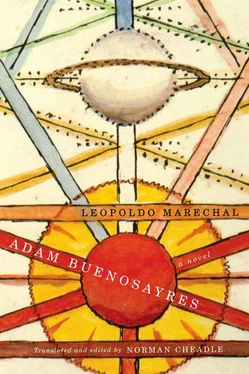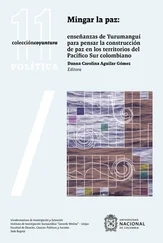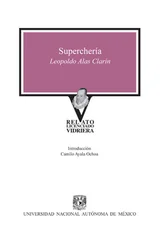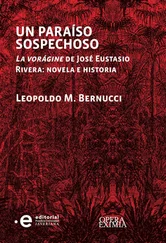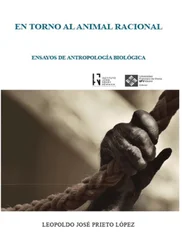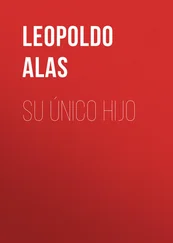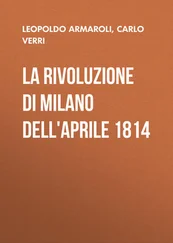More sad than indignant, Franky got to his feet, picked up his automaton, and put him under his arm:
— Gentlemen, he concluded, pointing at Samuel Tesler. That man and I cannot be in the same room.
And he initiated an extremely honourable exit. But at last the audience reacted: they exploded into irate shouting and shook menacing fists at Samuel, who was yelling back without being heard. At that point, the astrologer and I stood up. Taking the hornèd philosopher in tow, we dragged him away kicking and screaming as we fled the hall and the hissing and booing of the crowd.
Once we were back out on the street, I refused to visit any more infernal buildings. In the last two, we had again encountered a violence I didn’t like, and I told Samuel so, in polite but no uncertain terms. Hearing this, the philosopher guided us into a garden or park filled with flowers so oversized as to quite astonish me. We were looking for the way out of the garden, and thought we’d found it, when a gigantic insect landed in a heap at our feet. It shook the dust from its bedraggled wings, managed to straighten up into an almost human posture, and stood looking at us for a moment.
Simply, unexpectedly, the monstrous creature told us its name: Don Ecuménico. The astrologer didn’t bat an eye, and Samuel Tesler’s gaze remained steady. I alone showed signs first of consternation and then of amazement, not so much because of the creature’s unusual name, scarcely blameworthy for its wholly innocent archaism, but rather for the astounding fact that a humble beast, little more than a worm with wings, was actually talking to us. That’s why, ignoring its name, I began to examine the physical details of that insect whose pretensions to humanity were, in my view, quite ludicrous. Its head was something like that of a common butterfly, with a pair of protruding, multi-faceted eyes, two fuzzy palpi, and a spiral-proboscis that rhythmically extended and retracted. However, I soon noticed a disturbingly human expression peering out from those bestial features, and an intelligent light flashing in those faceted eyes. Next came the thorax; from it sprouted feeble little legs and vast wings covered in yellow, red, and blue powder, clouds of which were shaken loose at the slightest tremor of the wings. Finally, there was the abdomen: its thick-ringed form still bore the imprint of the worm it had once been before it acquired its flying apparatus. A granular pollen of unhealthy hue fouled its head and thorax, as though the ungainly creature had entered a hundred prohibited flowers, brushing past poisonous stamens to get at accursèd nectars. But most disconcerting of all, the freakish thing had a story to tell, and it recounted its tale not just shamelessly but with gusto, which in my view was not at all appropriate in a talking bug, even if its name was Don Ecuménico.
— To understand my situation, the creature began, one ought to recall the ancient metamorphoses described in memorable pages by Ovid, Apuleius, and Lucian. Contrary to what lacklustre scholarly tradition has maintained, the theme of metamorphosis belongs not only to the classical mind, but to all men gifted with metaphysical antennae who intuit the possibility or risk of a transformation in the permanence of their being and in the ephemeral quality of their human structure. Now then, a metamorphosis may be a mere exchange of forms undertaken as naturally and innocently as the serpent changes its skin every year. Or it can be a mutation extraordinarily imposed as a punishment. My metamorphosis, gentlemen, is of the latter type.
After this exordium, the wingèd bug who gave his name as Don Ecuménico paused. I won’t say his initial tone was pedantic, irritating, or smugly pompous, since such nuances of expression are not easy to detect in a voice issuing from a ridiculous spiral-proboscis. What I will affirm, without risking injustice, is that when Don Ecuménico spoke of “punishment” his tone was shamelessly cold and academic, with none of the contrition that would have been good to hear from a creature thrown by the gods into the eighth circle of an inferno, even if such a creature was a laughably gawky butterfly with a name rusted out from sheer age.
— I was born in the barrio of San José de Flores, 171the insect continued. My father was a dour watchmaker from Turin, and my mother a tender young Spanish woman. I was the youngest of three brothers — the weakest, the odd-one-out in that abode of precisely ticking clockwork. We lived in a big old house; the workshop gave onto the street, and the other rooms were immense. Behind the wisteria-canopied patio was a wild backyard that my mother insisted on calling the “garden,” which was really a dense thicket of trees, creepers, and weeds crammed together in the tightest of brotherhoods. Not without anguish do I recall how I lived out my childhood in my father’s workshop (a room full of tick-tocks, monotone chimes, pendulums swinging obsessively, circular clocks chattering the hour, shouting out the hour, in dehumanized unanimity); or the rooms in the old house, always abuzz with conversations and games I didn’t share in; or the tangle of the garden, where my solitude found shelter and roundly ripened like a delicious fruit. I was barely nine years old, and — unlike most children, who embrace the strong, sweet, well-painted illusion of worldly things — I was already fretting with doubts and fears, guessing at secret realities behind what seemed to me the deceitful veil of actuality. So in my eyes the world was a concurrence of forms and deeds uncertain in nature, inexplicable, gratuitous, and thus always frightening. I recall that my metaphysical distrust grew to the point that I came to doubt the regularity of natural phenomena, and more than once woke up with my heart pounding in the grip of fear, suspecting that when I opened my eyes I’d be in another world, surrounded by different objects and abominable entities. Of course my childish intuitions never found any expressive outlet; rather, they made me sad and heartsick; my emotional excess tended to find release in tearful outbursts impossible to hold back, especially at the family dinner table when suddenly, inexplicably, the meal would strike me as the saddest and most absurd of human rites. Then, when asked to explain my tears, I wouldn’t know what to say and would doggedly cling to silence, which only made my father grunt his displeasure, my brothers poke fun at me, and my mother smile and favour me with a look full of kindly divinations. Later on, wanting to avoid the humiliation of that mockery and scolding, I invented for my tears a series of such far-fetched causes that, rather than convincing anyone, they only increased the already considerable notoriety of my “sob-fests.” Less abstract episodes contributed as well to the strange reputation that had grown around my sensitivity. I recall that my father, who as a good watchmaker was enthusiastic about new mechanical inventions, had bought one of the first phonographs to come to Buenos Aires. It was a shrill monster, with its nickel-plated horn and its metal mandrel into which one inserted a hollow cylinder etched with the song of one’s choice. Among the recordings my father had amassed, there was one that made the primitive phonograph my torture machine — a Spanish carcelera with a jailbird’s dark tale. The first lines went like this:
Because I killed a woman
I got the ultimate sentence;
the king’s signed the order
and my suffering begins
manacled to a chain. 172
Whether it was the sad story, the heart-rending melody, the prisoner’s mournful voice, or all three together distorted by the rudimentary mechanism, the fact was that from the first hearing I got choked up and couldn’t hold back my sobs. As usual, the initial surprise among the family was followed by my brothers’ laughter and my father’s indignation. The good watchmaker, who loved experimental science, insisted on playing the carcelera a few more times; realizing that it invariably produced the same effect on me, he gave up on the experiment, certain he had come up against the unintelligible. But — alas! — my brothers had caught on: for months on end, with the meticulous cruelty of children, they spied on my soul, picked my happy moments, rushed to the phonograph, and forced me to hear the carcelera . And this, with mathematical precision, activated my crying mechanism.
Читать дальше
